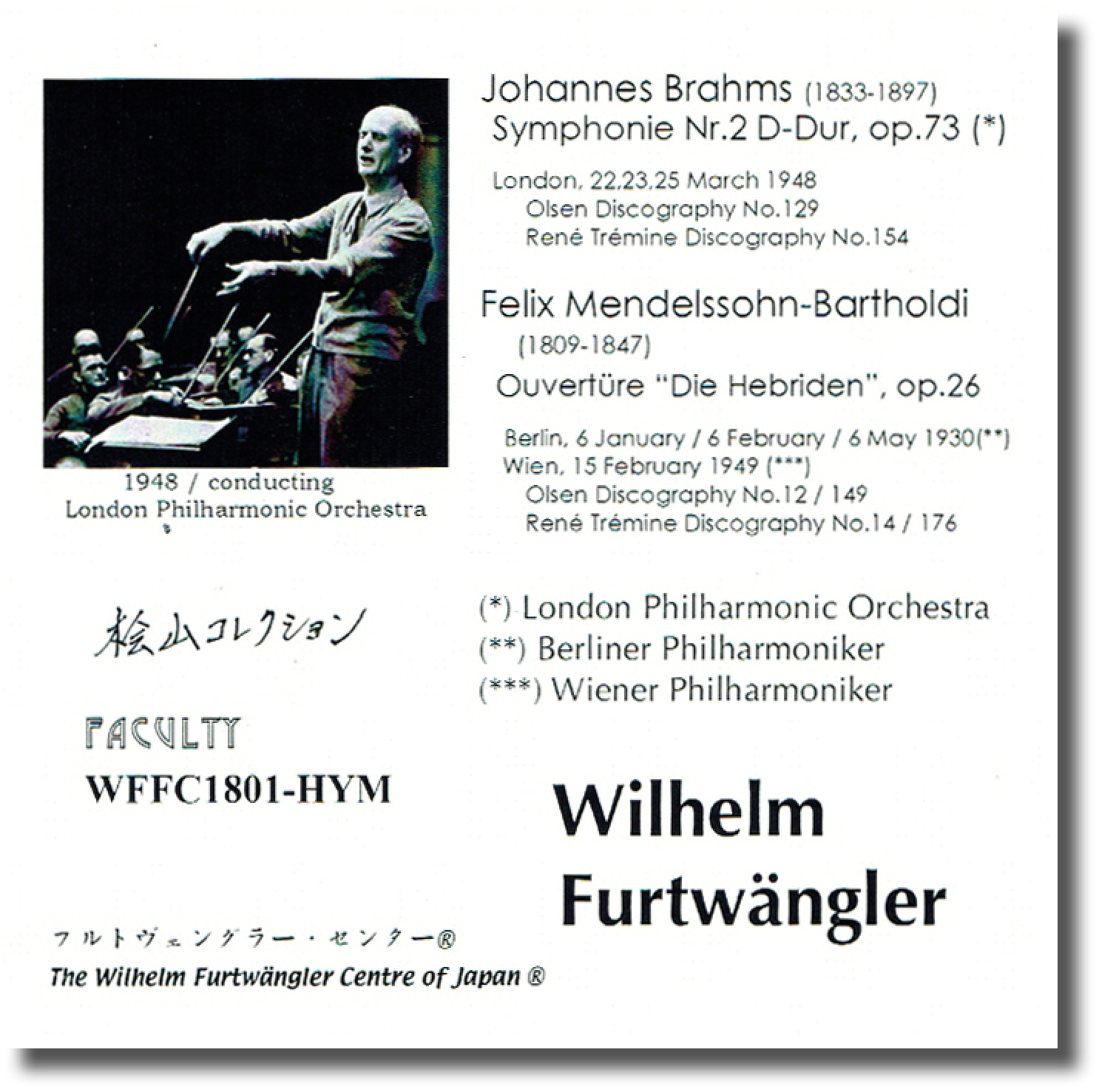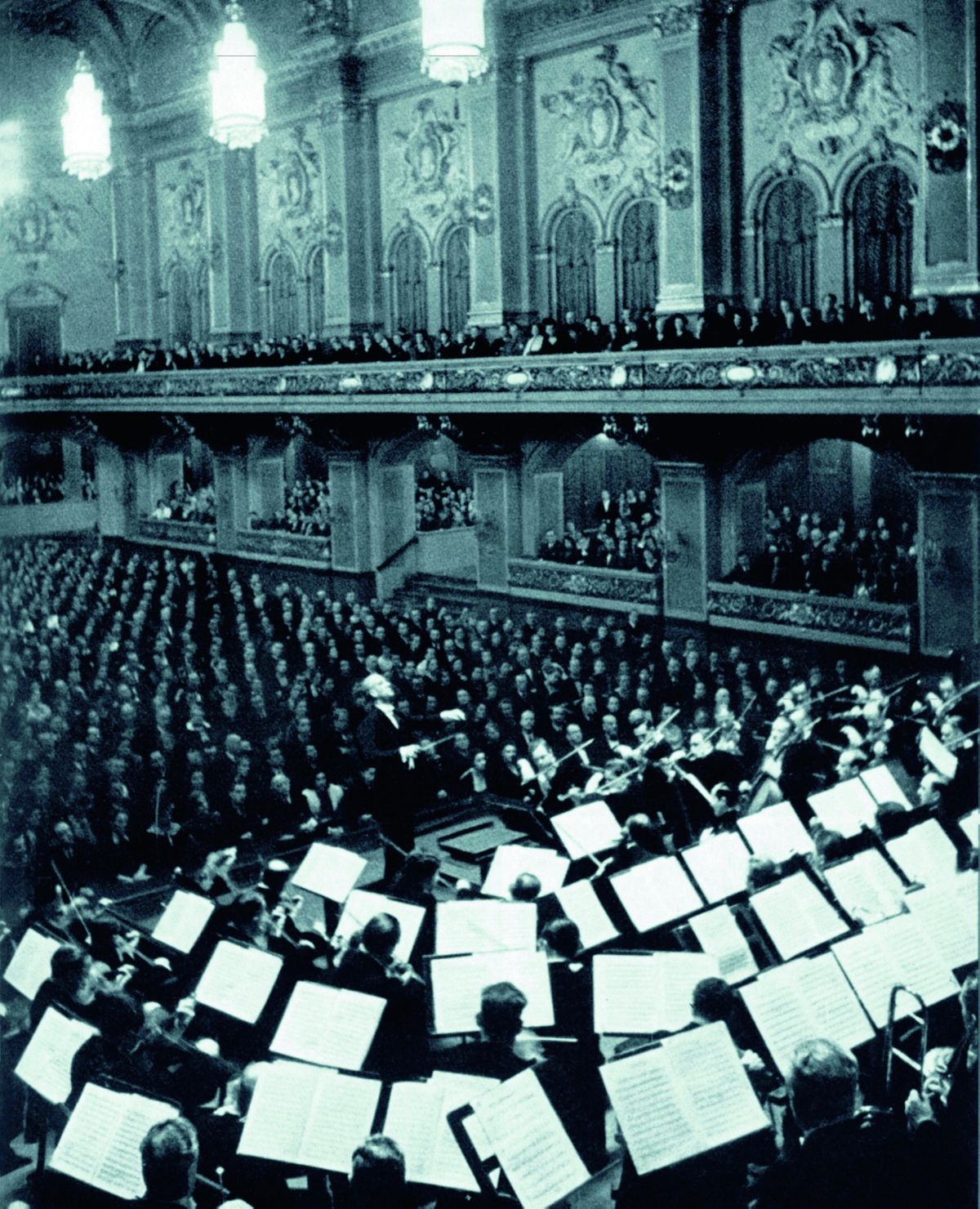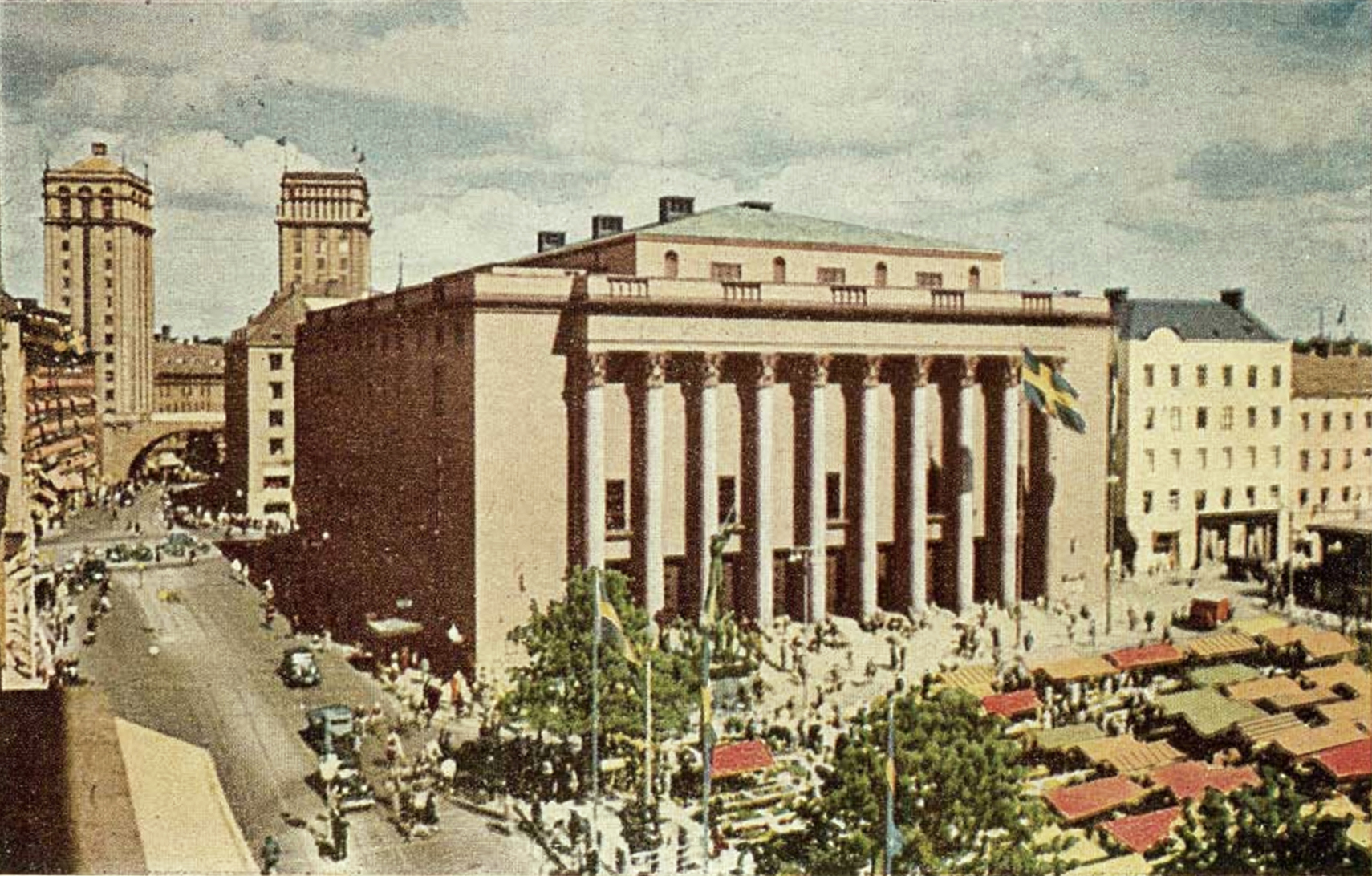Month: September 2018
News
Drawing from the collection — that seems inexhaustible — of Kosuke Hiyama, the Japanese society, The Wilhelm Furtwängler Centre of Japan, has released a new CD.

It has the reference WFFC1801-HYM and offers:
– Brahms’ Second Symphony in the Decca recording of March 1948 with the London Philharmonic,
– four alternative, rejected takes of the same recording,
– Mendelssohn’s Hebrides Overture in the Polydor release of 1930 (BPO),
– the same work in the VPO recording of 1949 for EMI.
Our partners have avoided, this time, presenting the sides of the 78 discs separately and unedited; we therefore have the works in their continuity
We know that this Second Symphony of Brahms is little appreciated, despite its qualities. It is true that the recording sessions did not go especially well, Furtwängler intervening in the balance, not necessarily for the good… At least we have here an excellent recording that means we can make up our own minds.
Furtwängler was always at ease with the effervescent romanticism of Fingal’s Cave, to use the other name of Mendelssohn’s Hebrides Overture — one that is more evocative for those who have visited this impressive part of the Scottish coast. The transfers were most seriously effected.
We have ordered for you a certain number of copies.
This CD has a price of 12 €, and will be available from 30 September from our shop.
The publication of the facsimile of the programme for the concert in Berlin on 7 February 1943 (Sibelius and Brahms) serves to remind us that the concerts of that period in the capital of the Third Reich no longer presented many great soloists.
They were elsewhere: abroad in the case of those who had gone into exile, confined to their occupied countries (although some of these did make the journey…), or not daring to travel to a city where the flames of incendiary bombs burned more brightly than the stars of music…

In five weeks from now our new production will be available to download, after the Ninth of 1942 and the Eroica of 1952 which have just been posted online.
This new reference (SWF D03): Brahms’ German Requiem, performed in Stockholm in November 1948.
Connoisseurs know it already: we have only three documents of Furtwängler’s performance of this masterpiece. More than 20 years ago the SWF republished the Lucerne concert of 1947; a magnificent and moving reading, yet one that required listeners to have “ears of faith”, so precarious was the sound. Let us forget the recording, incomplete in any case, of Vienna 1951: none of the performers seems to be at their best. There remains the recording of the concert in Stockholm on 19 November 1948 — the third concert of the series. We have known of this for more than 40 years, or rather we thought we knew it in re-releases that ranged from the dreadful to the just about passable. It was essential that the SWF tackle the issue, yet only by showing itself to be exemplary so that at last you could appreciate the greatness of this performance at its true value.
 Konserthuset in 1948
Konserthuset in 1948
In order to do this, we asked Swedish Radio for a high definition copy from its archive. This was then entrusted to the studio Art et Son — Christophe Hénault —, who, by going beyond his skilful work in reducing the background noise and appropriately equalising the tone-colours, gave the sound its full potential with, notably, a phenomenal and hitherto unexampled dynamic, and a transparency that brings out the choral sections. The German Requiem is above all a vocal work, and the choral sections carefully prepared by Johannes Norrby are a constant reminder of this, supported as they are by an attentive orchestra, with the contributions of two excellent soloists, albeit they are relatively little-known outside Sweden: Kerstin Lindberg-Torlind and Bernhard Sönnerstedt.
It is in this kind of re-release that high definition, 24/96, finds total justification, highlighting tiny details, yet also giving life to the musical texture. That said, the digital pack includes the same files in ‘CD format.
Two Swedish correspondents, Nils-Göran Olve, the son of an orchestral violinist who took part in these evenings, and Göran Söderwall, a member of the SWF, offered to prepare one of the most copious booklets we have ever presented. Not only have they drawn up a table of the relationship of Furtwängler with the Orchestra and the context of these evenings, but they have also translated for us all the dithyrambic press articles that appeared on the morrow of the concert!
We have added the biographies of the performers, the list of the orchestral musicians, the trilingual texts of the Requiem, and a facsimile of the programme. The booklet is offered in two versions, French and English, illustrated with some rare iconography.
In order to achieve this result, we have been able to count on the help of the Royal Philharmonic Orchestra and Chorus of Stockholm, who responded with great generosity to our solicitations. Along with Swedish Radio and our two Swedish correspondents, may they here receive our most grateful thanks.
Once, and only once, Furtwängler had a go at stage direction. It was usually a job for Heinz Tietjen, stage director AND conductor, intendant of the national opera, and hihg priest in Bayreuth. It would become customary with the Karajan of the 1960s.
It happened in January 1943 in Vienna: Furtwängler conducted several performances of Tristan und Isolde, with Max Lorenz and Anny Konetzni. Already three years previously he had managed to get out of the reserve the beautiful scenery that Alfred Roller had designed for Mahler’s production in 1903. Yet from that to following in the footsteps of Wymetal or Tietjen… One thing is certain: when Tristan was revived towards the end of that same year, the name of Wymetal reappeared on the programme! To each his own trade.
In any case, the press at the time did not miss the show (click on the article to enlarge it).
Furtwängler always considered it a duty to serve the music of his time. There was Strauss and Pfitzner for the older generation, Hindemith and Bartok for the young. And then there were the others, all those on whom fortune did or did not smile. Who remembers Frommel, Hessenberg or even Braunfels? And so, in order to have at least an idea of what we are talking about, the SWF offers you a panorama of all these composers (some are missing, we know!) with a ‘photo line-up’, a quick presentation and the list of the performances by Furtwängler.
72 composers! Clic on the cover to find out about them.


